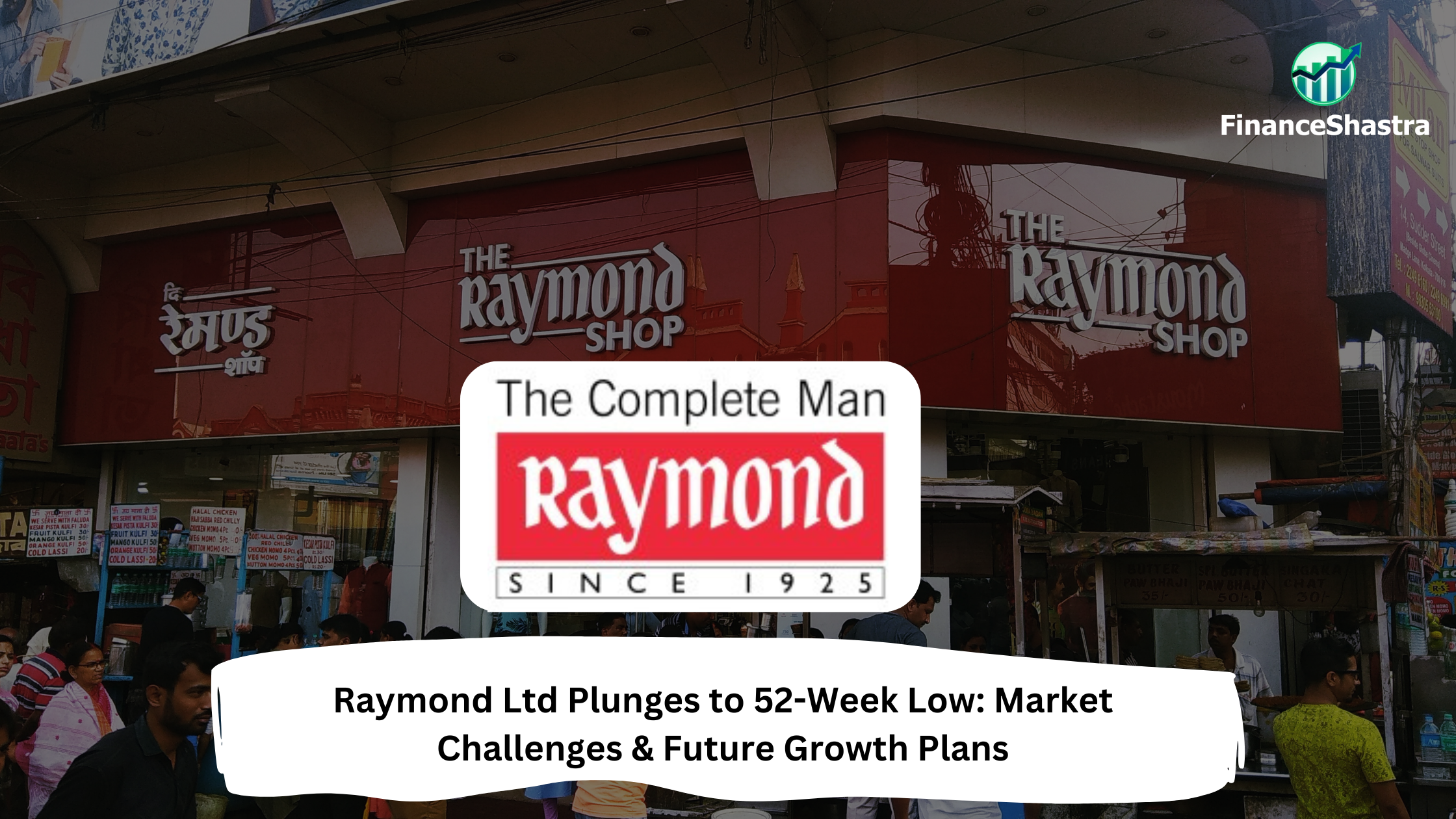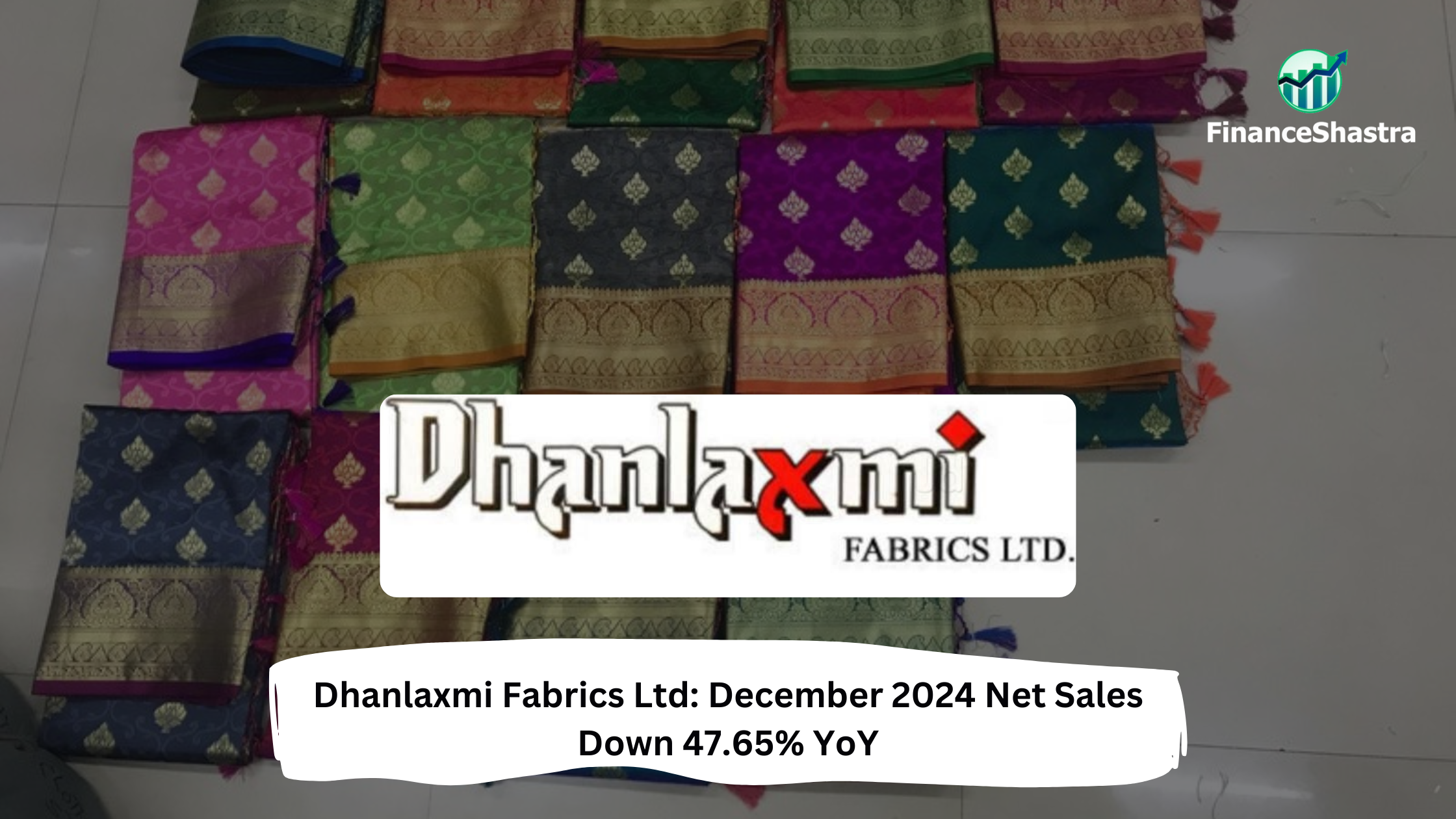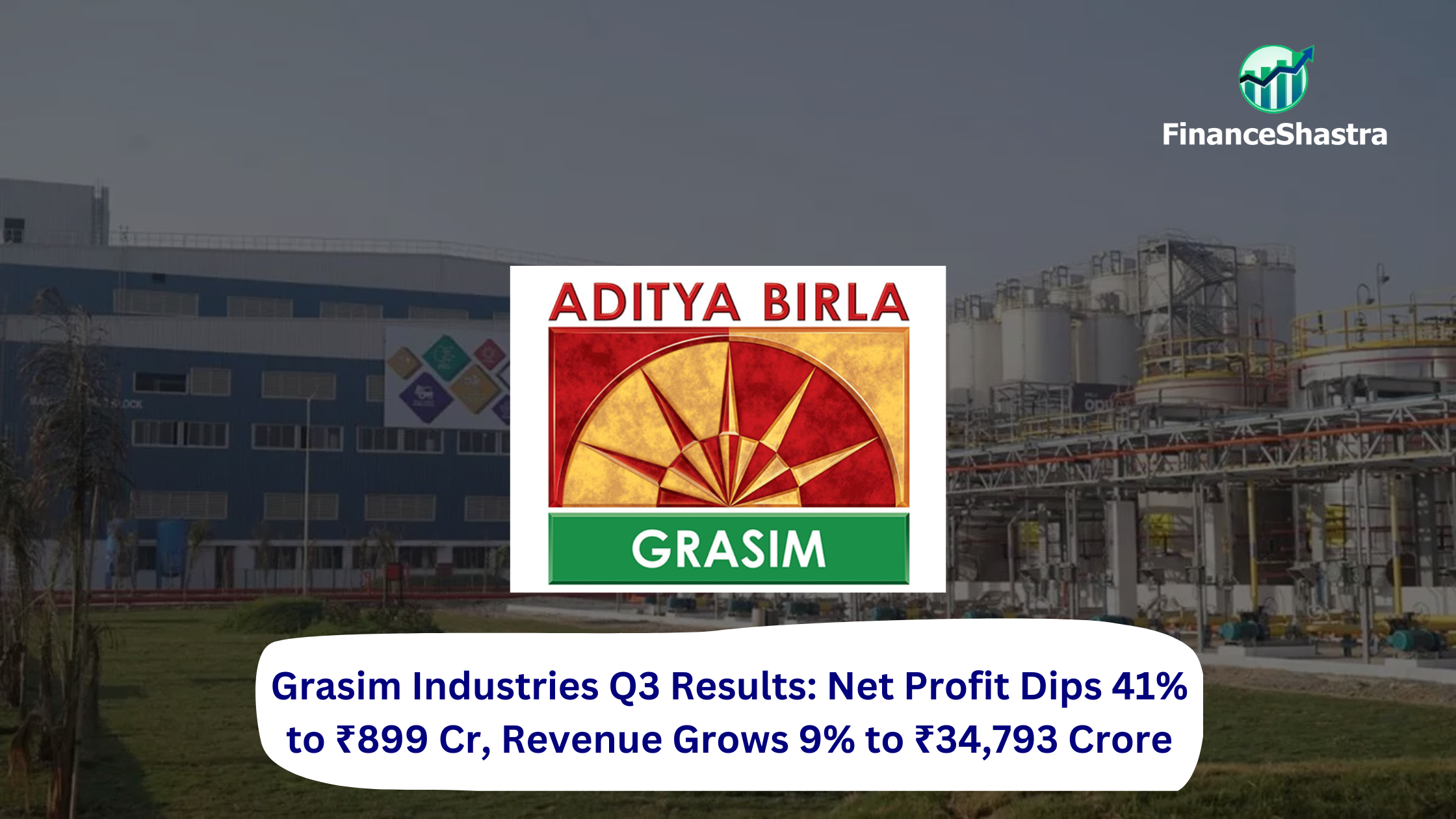Raymond Ltd Plunges to 52-Week Low: Market Challenges & Future Growth Plans
Business and Industry Overview:
Raymond Ltd is a well-known Indian company that makes fabrics and clothes. It is the largest fabric maker in the world. The company started in 1925 as a small woolen mill near Mumbai. Later, the Singhania family took over and made it a big brand. Today, it is one of the top textile and fashion companies in India.
Raymond sells suiting fabrics all over India. It has 30,000 retailers and more than 600 exclusive stores. The company also exports to 55 countries, including the US, Canada, Europe, and Japan. It is India’s biggest woolen fabric maker and controls 60% of the suiting market. Raymond has over 20,000 fabric designs and colors, which is the largest collection by one company.
Raymond also makes ready-made clothes. It owns brands like Park Avenue, ColorPlus, and Parx. The company is also involved in real estate and engineering. Over the years, it has built a strong name in the market. In 2015, it was named India’s most trusted apparel brand. Even with competition, Raymond remains a leader in the fashion and textile industry.
The textile and clothing industry is one of the biggest in the world. It includes making fabrics, designing clothes, and selling them. Many people work in this industry, from farmers growing cotton to workers stitching clothes in factories. India is a major producer of textiles like cotton, wool, silk, and synthetic fabrics. In April-June 2025, India exported $2,244 million worth of ready-made clothes. The country’s cotton production is expected to reach 7.2 million tonnes by 2030 due to growing demand. The Indian textile market is growing fast and may reach $350 billion by 2030, with exports of $100 billion. In April-January 2024, India exported $28.72 billion worth of textiles, clothes, and handicrafts. India is a preferred choice for textile production because of low costs and skilled workers. The government is helping the industry by allowing 100% foreign investment and launching schemes like PLI worth $1.44 billion for fabric and technical textiles. A 12% tax rate has been fixed for some fabrics to make business easier. The government is also training workers, with over 1.8 lakh people trained under Samarth. It has approved $7.4 million for research and $109.99 million for upgrading machines in factories. Foreign investment in textiles has reached $4.47 billion since 2000. The government also plans to create 75 textile hubs to boost business. With strong demand, government support, and more investment, India’s textile industry will continue to grow.
Raymond Ltd is a famous company in India’s clothing and fabric industry. It is the largest fabric maker in the world and has a 60% share in India’s suiting market. It is also India’s biggest woolen fabric producer. The company has a large network of shops. It sells products in over 4,000 multi-brand stores and 637 Raymond showrooms. Its fabrics and clothes are available in 30,000 shops across 400 towns in India. Raymond also sells its products in 55 countries, including the US, Canada, Europe, Japan, and the Middle East.
Raymond makes different types of products. It sells fabric, ready-made clothes, grooming products, and home textiles. It owns brands like Park Avenue, ColorPlus, and Parx. Raymond competes with Vardhman, Arvind, Siyaram, and Aditya Birla Fashion. But people trust Raymond more because of its good quality, strong brand, and large store network. The company has over 20,000 fabric designs and colors, making it one of the largest collections in the world.
Raymond has modern factories in Maharashtra and Gujarat. These factories use advanced technology to make high-quality fabrics at lower costs. The company is always creating new styles and fabrics to stay ahead in fashion. In 2015, it was named India’s most trusted clothing brand.
Raymond is growing fast. It is opening new stores, launching new products, and selling more in foreign markets. More people are buying premium fabrics and clothing, and the government is helping the textile industry grow. With its strong brand, good quality, and large store network, Raymond will continue to grow and remain a top company.
Latest Stock News:
Raymond Ltd, a mid-sized textile company, has hit a new 52-week low after five days of losses, even though the textile sector has done slightly better. The stock has dropped a lot in the past year, which raises concerns about the company’s financial health and future growth. But, it still has a strong return on equity.
Today, 1.34 lakh shares of Raymond traded on the BSE, which is much higher than its usual 25,000 shares over the past two weeks. The total turnover was ₹18.44 crore, and the company’s market value is ₹9,472.78 crore. There were 14,733 buy orders compared to 14,460 sell orders.
Some analysts think the stock is bullish in the short term, while others believe it has a good risk-reward balance. They think ₹1,220 and ₹1,320 are key support levels, and ₹1,440 to ₹1,600 are resistance levels. If the stock stays above ₹1,440, it might go up to ₹1,600. But, if it drops below ₹1,320, it could weaken the stock’s rise.
Technically, Raymond’s stock is above its short-term moving averages (5-day, 10-day, 20-day, and 30-day) but below its long-term averages (50-day, 100-day, 150-day, and 200-day). The Relative Strength Index (RSI) is at 56.75, showing it is neither overbought nor oversold.
The company has a low P/E ratio of 1.04 and a P/B ratio of 2.96, with Earnings Per Share (EPS) of ₹1,368.94. Raymond’s Return on Equity (RoE) is very high at 283.97%. The stock has a beta of 1.3, meaning it can be volatile.
As of December 2024, the promoters own 48.87% of the company.
Potentials:
Raymond Ltd has big plans for the future. The company wants to list its apparel and real estate businesses by 2025. This will help raise the value for people who own shares in the company. Raymond also wants to break up its current structure, which has caused the stock price to be lower than expected. Raymond Lifestyle, which is known for its men’s suits, plans to grow in the Indian market and in the wedding wear market. The company wants to open more stores and grow quickly in these areas.
Raymond also plans to expand into other countries and increase its number of stores in India. It will keep making new products and better fabric designs to meet what customers want. The company will also open more Raymond showrooms in different cities.
Raymond wants to sell more online, as more people are shopping on the internet now. The company will work on improving its factories so that it can reduce costs and keep the quality high. Raymond also cares about the environment and will use greener technologies to make the production process cleaner and more eco-friendly.
Raymond wants to make its supply chain better and take more market share to stay ahead of its competition. The company may also look for new partnerships or buy other companies to keep growing. All these plans should help Raymond become a stronger and more valuable company in the future.
Analyst Insights:
- Market capitalisation: ₹ 9,428 Cr.
- Current Price:₹ 1,413
- 52-Week High/Low:₹ 2,381 / 1,050
- Stock P/E: 29.6
- Dividend Yield: 0.71 %
- Return on Capital Employed (ROCE): 30.9 %
- Return on Equity: 44.5 %
Raymond Ltd has been doing well financially. Its profit has grown by 57.8% each year over the last 5 years. The company’s return on equity (ROE) is 44.5%, which is a good sign. It has also reduced its debt. In FY23, its revenue went up to ₹8,215 crores, and its profit reached ₹537 crores. The company has also split off its lifestyle business, which could help it grow even more. The stock’s price-to-earnings (PE) ratio of 29.6 is lower compared to other companies in the same sector, which makes it a good investment opportunity. I recommend buying the stock, with a target price of ₹1,650-₹1,700 in the next year.




